Bioplastics that are naturally synthesized by microbes could be made commercially viable by using waste cooking oil as a starting material. This would reduce environmental contamination and also give high-quality plastics suitable for medical implants.
Sep 3rd, 2012
Read more
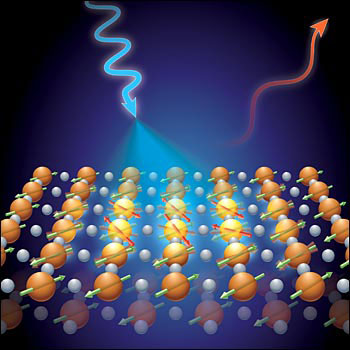 Physicists have revealed key quantum characteristics of high-temperature superconductors, demonstrating new experimental methods and breaking fundamental ground on these mysterious materials. In a surprising discovery, researchers found that the spin waves present in complete, three-dimensional samples survived all the way down to the atomic level.
Physicists have revealed key quantum characteristics of high-temperature superconductors, demonstrating new experimental methods and breaking fundamental ground on these mysterious materials. In a surprising discovery, researchers found that the spin waves present in complete, three-dimensional samples survived all the way down to the atomic level.
Sep 3rd, 2012
Read more
Risk & Policy Analysts Ltd with IVAM UvA BV, have been commissioned by the European Commission to assess the potential socio economic, health and, if relevant, environmental impacts for the EU and EEA arising from the use of engineered nanomaterials and nanotechnology in the workplace.
Sep 3rd, 2012
Read more
 Materials scientists of the Helmholtz-Zentrum Geesthacht develop new magnesium materials for vehicles, airplanes and satellitesin the EU-project EXOMET, which is coordinated by the European Space Agency (ESA).
Materials scientists of the Helmholtz-Zentrum Geesthacht develop new magnesium materials for vehicles, airplanes and satellitesin the EU-project EXOMET, which is coordinated by the European Space Agency (ESA).
Sep 3rd, 2012
Read more
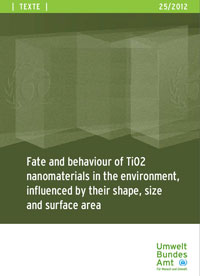 Es gibt noch grosse Wissensl�cken im Hinblick auf das Verhalten und den Verbleib von Nanomaterialien in der Umwelt. Das Umweltbundesamt (UBA) adressierte diese Problematik und untersuchte in einem durch das Bundesumweltministerium finanzierten Vorhaben wie sich nano-Titandioxid in simulierten Kl�ranlagen und B�den verh�lt.
Es gibt noch grosse Wissensl�cken im Hinblick auf das Verhalten und den Verbleib von Nanomaterialien in der Umwelt. Das Umweltbundesamt (UBA) adressierte diese Problematik und untersuchte in einem durch das Bundesumweltministerium finanzierten Vorhaben wie sich nano-Titandioxid in simulierten Kl�ranlagen und B�den verh�lt.
Sep 3rd, 2012
Read more
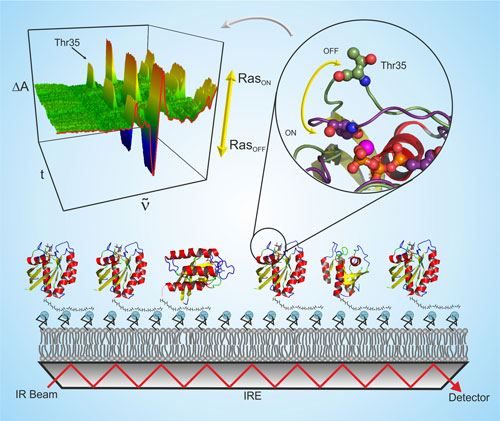 Researchers have developed a new method for the detailed study of the interaction between pharmaceuticals and their target proteins. The pharmaceutical industry has already taken notice of the new infrared spectroscopy technique.
Researchers have developed a new method for the detailed study of the interaction between pharmaceuticals and their target proteins. The pharmaceutical industry has already taken notice of the new infrared spectroscopy technique.
Sep 3rd, 2012
Read more
DEAD-box proteins function as recycling nanopistons when unwinding RNA.
Sep 2nd, 2012
Read more
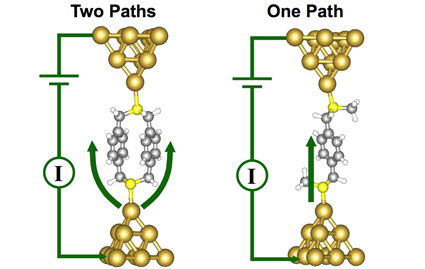 Scientists explore the laws that govern electronic conductance in molecular scale circuits.
Scientists explore the laws that govern electronic conductance in molecular scale circuits.
Sep 2nd, 2012
Read more
Svetlana Kilina, Ph.D., assistant professor of chemistry and biochemistry at North Dakota State University, Fargo, has received a $750,000 five-year award from the U.S. Department of Energy Office of Science Early Career Research Program. Funding will be used to conduct research outlined in Dr. Kilina's proposal titled "Modeling of Photoexcited Process at Interfaces of Functionalized Quantum Dots".
Aug 31st, 2012
Read more
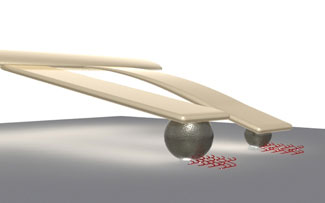 Researchers from North Carolina State University have developed a new nanolithography technique that is less expensive than other approaches and can be used to create technologies with biomedical applications.
Researchers from North Carolina State University have developed a new nanolithography technique that is less expensive than other approaches and can be used to create technologies with biomedical applications.
Aug 31st, 2012
Read more
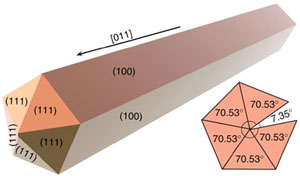 Researchers at Argonne National Laboratory's Center for Nanoscale Materials have observed a stable body-centred tetragonal phase in silver nanoparticles with fivefold twinning even at ambient conditions.
Researchers at Argonne National Laboratory's Center for Nanoscale Materials have observed a stable body-centred tetragonal phase in silver nanoparticles with fivefold twinning even at ambient conditions.
Aug 31st, 2012
Read more
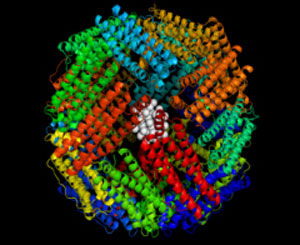 Nanoparticles synthesized from noble metals such as ruthenium, rhodium, palladium, silver (Ag), osmium, iridium, platinum, and gold (Au) are attracting increased attention by researchers around the world looking for advances in such fields as biomedicine and catalysts.
Nanoparticles synthesized from noble metals such as ruthenium, rhodium, palladium, silver (Ag), osmium, iridium, platinum, and gold (Au) are attracting increased attention by researchers around the world looking for advances in such fields as biomedicine and catalysts.
Aug 31st, 2012
Read more
Classroom observation refines initial thoughts - and encourages scientific understanding.
Aug 31st, 2012
Read more
By measuring the unique properties of light on the scale of a single atom, researchers from Duke University and Imperial College, London, believe that they have characterized the limits of the ability of metals to be used in devices that rely on the enhancement of light.
Aug 31st, 2012
Read more
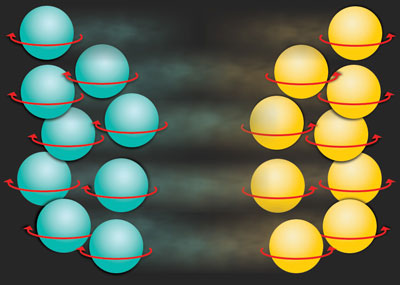 Work correlating ultracold atoms' spin with their direction of motion may help physicists model new circuit devices and unusual phases of matter.
Work correlating ultracold atoms' spin with their direction of motion may help physicists model new circuit devices and unusual phases of matter.
Aug 30th, 2012
Read more
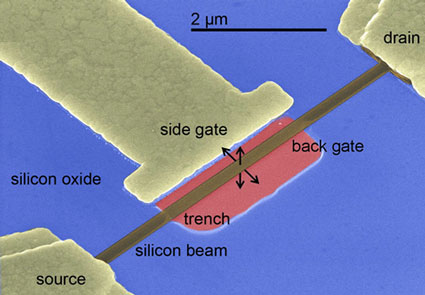 Researchers have learned how to mass produce tiny mechanical devices that could help cell phone users avoid the nuisance of dropped calls and slow downloads. The devices are designed to ease congestion over the airwaves to improve the performance of cell phones and other portable devices.
Researchers have learned how to mass produce tiny mechanical devices that could help cell phone users avoid the nuisance of dropped calls and slow downloads. The devices are designed to ease congestion over the airwaves to improve the performance of cell phones and other portable devices.
Aug 30th, 2012
Read more











 Subscribe to our Nanotechnology News feed
Subscribe to our Nanotechnology News feed